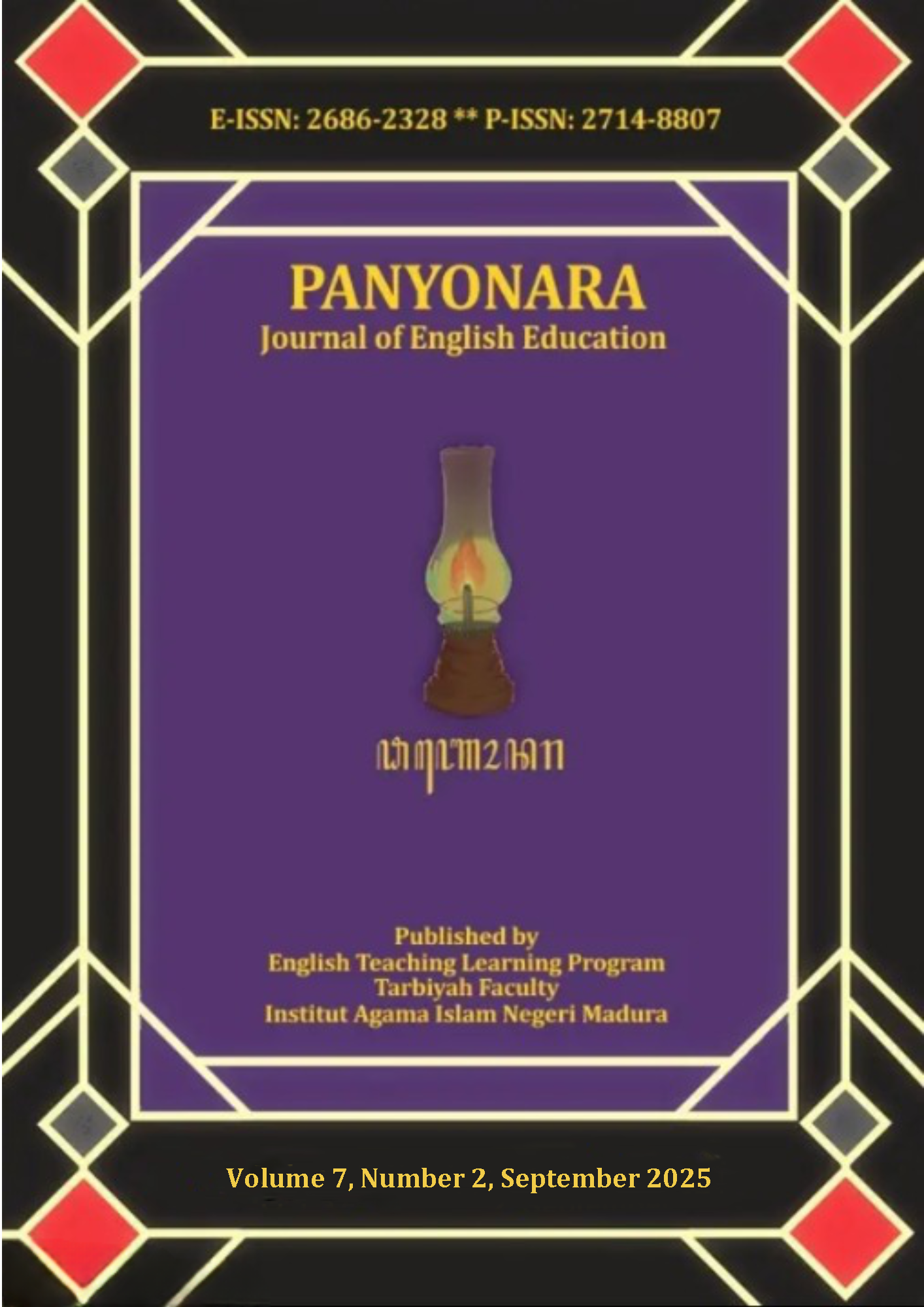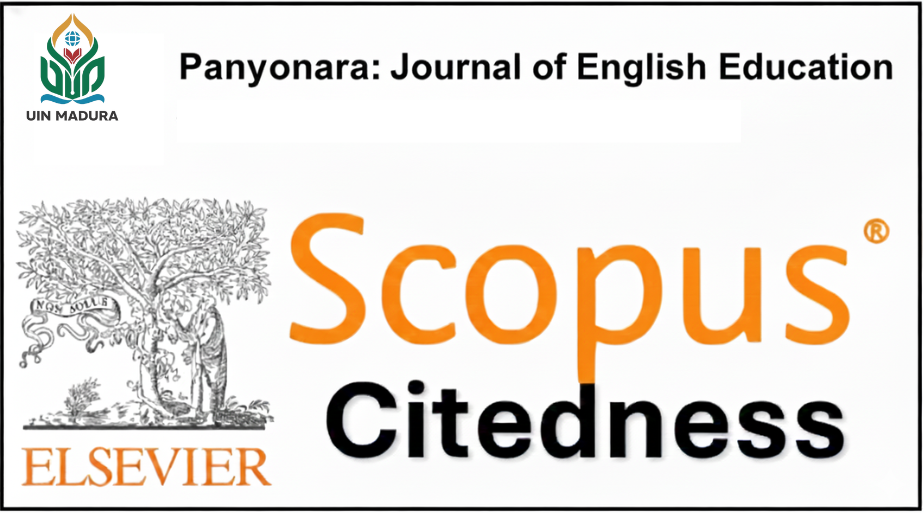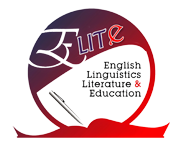Comparative Experiences of EFL Students Using Gamified Versus Traditional Web-Based Grammar Practice: A Qualitative Case Study
 Abstract views: 346
,
Abstract views: 346
,
 PDF downloads: 146
PDF downloads: 146
Abstract
The increasing use of digital tools in English as a Foreign Language (EFL) instruction has transformed grammar learning, offering contrasting affordances. This study explored how university-level EFL students in Indonesia experience gamified (Quizizz) versus traditional web-based grammar platforms. Adopting a qualitative case study with 30 participants, data were collected through classroom observations and semi-structured questionnaires based on 15 behaviorally anchored indicators aligned with three research questions. Findings revealed that Quizizz heightened engagement through competitive elements, immediate feedback, and peer interaction—though some learners experienced stress due to time constraints. In contrast, traditional grammar websites promoted self-paced study, detailed explanations, and conceptual clarity, albeit with lower interaction and occasional disengagement. Cross-platform comparison showed learners valued both tools: Quizizz for motivational drill practice and traditional platforms for in-depth understanding and exam preparation. These insights suggest that neither platform alone is universally optimal. A blended instructional approach, combining gamified engagement with structured guidance, offers a more balanced grammar learning experience tailored to diverse learner preferences. Future research should include longitudinal and comparative designs across proficiency levels and integrate theoretical perspectives such as Self-Determination Theory and the Technology Acceptance Model to further elucidate learners' motivation and platform use.
Downloads
References
Abdulbaki, S., Khasawneh, M. A. S., & Tashtoush, M. A. (2025). The Effectiveness of Gamified Learning Environments in Promoting Grammar Mastery in Jordanian Secondary School EFL Learners. International Journal of Innovative Research and Scientific Studies, 8(2), 3375–3386. https://doi.org/10.53894/ijirss.v8i2.6013
Alaa Jasim Alsadaji, Sadeq Al-Fayyadh, Saeb Fadhil Al-Saadi, Z. J. M. (2023). Gamification in Higher Education. Gamification in Higher Education, 3(10), 26–35. https://doi.org/10.4324/9781003444954-4
Ardiel, V., & Sri Mulyani Rusli. (2024). Developing a Website English Learning Application with Google Site to Enhance Grammar Understanding. Edelweiss : Journal Of Innovation In Educational Research, 2(2), 58–66. https://doi.org/10.62462/edelweiss.v2i2.29
Benson, P. (2013). Teaching and Researching Autonomy (Vol. 17). London: Routledge.
Capatina, A., Juarez-Varon, D., Micu, A., & Micu, A. E. (2024). Leveling up in Corporate Training: Unveiling the Power of Gamification to Enhance Knowledge Retention, Knowledge Sharing, and Job Performance. Journal of Innovation and Knowledge, 9(3), 100530. https://doi.org/10.1016/j.jik.2024.100530
Chen, Z. (2023). The Influence of Schools' Reward Systems on Students' Development. Journal of Education, Humanities and Social Sciences, 8, 1822–1827. https://doi.org/10.54097/ehss.v8i.4591
Daskan, A., & Yildiz, Y. (2020). Blended Learning: A Potential Approach to Promote Learning Outcomes. International Journal of Social Sciences & Educational Studies, 7(4). https://doi.org/10.23918/ijsses.v7i4p103
Davis, F. D. (1989). Perceived Usefulness, Perceived Ease of Use, and User Acceptance of Information Technology. Delle Vicende Dell’agricoltura in Italia; Studio e Note Di C. Bertagnolli., 13(3), 319–340. https://doi.org/10.5962/bhl.title.33621
Ellis, R. (2006). Current Issues in the Teaching of Grammar: An SLA Perspective. Teaching Notes on Population.
Febriana, E., Setyaningrahayu, I. R., & Murtisari, E. T. (2022). Autonomy in Online Grammar Learning: EFL Students' Reported Practice and Perceptions. LLT Journal: Journal on Language and Language Teaching, 25(1), 185–199. https://doi.org/10.24071/llt.v25i1.3722
Fitria, T. N. (2021). The Use of Technology Based on Artificial Intelligence in English Teaching and Learning. ELT Echo : The Journal of English Language Teaching in Foreign Language Context, 6(2), 213–223. https://doi.org/10.24235/eltecho.v6i2.9299
Garamkhand Surendeleg, Violet Murwa, Han-Kyung Yun, Y. S. K. (2014). The Role of Gamification in Education – A Literature Review. Pathobiology, 7(29), 667–684. https://doi.org/10.1159/000159667
Hanus, M. D., & Fox, J. (2015). Assessing the Effects of Gamification in the Classroom: A Longitudinal Study on Intrinsic Motivation, Social Comparison, Satisfaction, Effort, and Academic Performance. Computers and Education, 80, 152–161. https://doi.org/10.1016/j.compedu.2014.08.019
Hasibuan, A., Depalina, S., & Nursaidah. (2025). The Effect of Using the Quizizz Application as an English Learning Exercise in Vocabulary Mastery. Esteem Journal of English Education Study Programme, 8(1), 301–313. https://doi.org/10.31851/esteem.v8i1.17906
Kaur, D. (2017). Comparative Analysis of Traditional and Modern Accounting Approach. 141401(1), 132–140.
Kruk, M. (2015). The Use of Internet Resources and Browser-Based Virtual Worlds. Teaching English with Technology, 14(2), 52–67.
Li, W., & Liu, L. (2023). An Examination of Influential Factors on Gamification in Higher Education: A Content Analysis. International Journal of Technology in Teaching and Learning, 19, 1–33. https://doi.org/10.37120/ijttl.2023.19.1.01
Luo, Z. (2023). The Effectiveness of Gamified Tools for Foreign Language Learning (FLL): A Systematic Review. Behavioral Sciences, 13(4). https://doi.org/10.3390/bs13040331
Manzano-León, A., Camacho-Lazarraga, P., Guerrero, M. A., Guerrero-Puerta, L., Aguilar-Parra, J. M., Trigueros, R., & Alias, A. (2021). Between Level Up and Game Over: A Systematic Literature Review of Gamification in Education. Sustainability (Switzerland), 13(4), 1–14. https://doi.org/10.3390/su13042247
Md Yazid, N. H., Sulaiman, N. A., & Hashim, H. (2024). A Systematic Literature Review of Web-Based Learning and Digital Pedagogies in Grammar Education (2015-2024). International Journal of Academic Research in Business and Social Sciences, 14(9), 2524–2542. https://doi.org/10.6007/ijarbss/v14-i9/22858
Mee Mee, R. W., Shahdan, T. S. T., Ismail, M. R., Abd Ghani, K., Pek, L. S., Von, W. Y., Woo, A., & Rao, Y. S. (2020). Role of Gamification in Classroom Teaching: Pre-Service Teachers’ View. International Journal of Evaluation and Research in Education, 9(3), 684–690. https://doi.org/10.11591/ijere.v9i3.20622
Miles, M. B. A. & Michael Huberman, J. S. (2014). Qualitative Data Analysis: A Methods Sourcebook (Vol. 3). London: Sage.
Munuyandi, T. A., Husain, S., Jabar, M. A. A., & Jusoh, Z. (2021). Effectiveness Of Quizizz in Interactive Teaching and Learning Malay Grammar. Asian Journal of University Education, 17(3), 109–118. https://doi.org/10.24191/ajue.v17i3.14516
Murtiningsih, R., & Failaih Zulfa, A. (2024). Implementation of Web-based English Learning to Improve Students’ Grammar Mastery. Proceedings International Conference of Community Services, 2(2), 1160–1165. https://www.grammar-monster.com
Murtiningsih, S. R., Zulfa, A. F., Sudarsi, S., Ariebowo, T., & Darmi, R. (2024). Implementing web-based language learning to improve the grammar skills of junior high school students: Grammar monster. E3S Web of Conferences, 594, 1–7. https://doi.org/10.1051/e3sconf/202459405009
Noveen Javed, Ruqayya Rehmat, N. M. (2024). Effectiveness of Gamification Elements in English Language Classrooms for Anxiety Reduction. 3(2), 172–182.
Permatasari, S. D., Sunardi, & Sumaryati, S. (2024). Understanding Student Needs for Effective Online English Grammar Learning: A Quantitative Descriptive Study. Voices of English Language Education Society, 8(3), 592–604. https://doi.org/10.29408/veles.v8i3.27578
Rahmadani, N., Rahman, F., & Swastina, L. (2022). Students' Satisfaction and Motivation in Learning Grammar Mediated by Quizizz. International Journal Corner of Educational Research, 1(2), 104–112. https://doi.org/10.54012/ijcer.v1i2.100
Rezvani, E., & Ketabi, S. (2011). On the Effectiveness of Web- and Print-Based Materials in Teaching Grammar to Iranian Efl Learners. Procedia - Social and Behavioral Sciences, 15, 376–381. https://doi.org/10.1016/j.sbspro.2011.03.105
Robert K. Yin. (2018). Case Study Research and Applications. In L. Fargotstein (Ed.), Case (Sixth, Vol. 53, Issue 9). Sage.
Sudarso, H., Rachman, A., Siswandi, Imran, A. F., & Pakpahan, E. M. (2024). Exploring the Effectiveness of Gamification in English Language Learning. Jurnal Review Pendidikan Dan Pengajaran, 7(4), 16243–16251.
Suharni, S., Amelia, M., & Asty, H. (2021). Efl Students’ Perception on Using Quizizz Application: a Survey Study. Journal of Asian Studies: Culture, Language, Art and Communications, 2(2), 81–87. https://doi.org/10.51817/jas.v2i2.35
Suryatiningsih, S. (2019). Fostering Learner Autonomy Through Web-Based Learning. Journal of Teaching & Learning English in Multicultural Contexts, 3(1). http://jurnal.unsil.ac.id/index.php/tlemc/index
Syed Khuzzan, S. M., Mohd Yushaa, N. S., & Hanid, M. (2021). Gamification Elements and Its Impact on Students. Journal of Technology and Operations Management, 16(No.2), 62–75. https://doi.org/10.32890/jtom2021.16.2.6
Sylvia, R., Al Khalidi, A., & Ikrima, P. F. (2024). Integrating Quizizz in the English classroom: Game-based learning and assessment. International Journal of Advances in Social Sciences, 1(1), 1–8. https://doi.org/10.62941/ijass.v1i1.18
Thurairasu, V. (2022). Gamification-Based Learning as The Future of Language Learning: An Overview. European Journal of Humanities and Social Sciences, 2(6), 62–69. https://doi.org/10.24018/ejsocial.2022.2.6.353
Urh, M., Vukovic, G., Jereb, E., & Pintar, R. (2015). The Model for Introduction of Gamification into E-learning in Higher Education. Procedia - Social and Behavioral Sciences, 197(February), 388–397. https://doi.org/10.1016/j.sbspro.2015.07.154
Vu, N. N., Nhi, K. T., Ha, T. N., & Tien, B. D. (2024). Assessing the Effectiveness of Quizizz Mobile App in Improving Grammar Competence among EFL Students. Rupkatha Journal on Interdisciplinary Studies in Humanities, 16(2), 1–13. https://doi.org/10.21659/rupkatha.v16n2.01g
Wijayanti, S., & Prasadja, H. (2022). Quizizz and Kahoot! for Online-Learning Engagement in Elementary School. 2020. https://doi.org/10.4108/eai.11-10-2021.2319534
Yurko, N., & Vorobel, M. (2022). Learning English Grammar Online: The Main Resources. Репрезентація Освітніх Досягнень Мас-Медіа Та Роль Філології У Сучасній Системі Наук (1St Ed), 115–123. https://doi.org/10.36074/rodmmrfssn.ed-1.11
The journal uses an Open Access policy under a Creative Commons Attribution-NonCommercial 4.0 International License. Authors who publish with this journal agree to the following terms:
- Authors retain copyright and grant the journal right of first publication with the work simultaneously licensed under a Creative Commons Attribution License that allows others to share the work with an acknowledgment of the work's authorship and initial publication in this journal.
- Authors are able to enter into separate, additional contractual arrangements for the non-exclusive distribution of the journal's published version of the work (e.g., post it to an institutional repository or publish it in a book), with an acknowledgment of its initial publication in this journal.
- Authors are permitted and encouraged to post their work online (e.g., in institutional repositories or on their website) prior to and during the submission process, as it can lead to productive exchanges, as well as earlier and greater citation of published work.

















